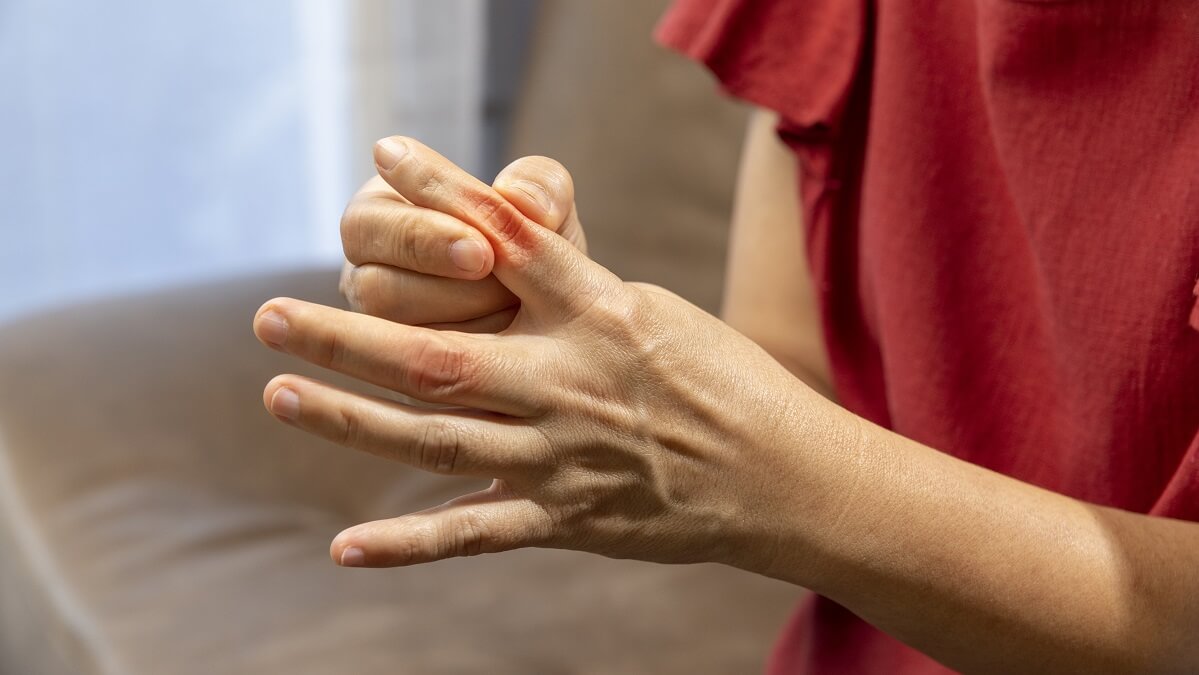Altered sensation in the fingers can range from harmless mild tingling to a severe loss that hinders normal day-to-day life. In most cases, this loss of sensation in the fingers is caused by nerve compression, poor circulation or repetitive motion. Here are the six most common reasons why your fingers may be numb and how to get them back to regular functioning.
Carpal tunnel syndrome
Carpal tunnel syndrome (CTS) is a common neurological condition that affects the wrist and hand. It occurs when there is compression or pressure on the median nerve, which runs from the forearm to the hand through a narrow passage called the carpal tunnel. This pressure results in pain, numbness, and weakness in the hand and wrist.
Potential causes of CTS:
- inflammation caused by injury or trauma
- repetitive motions such as typing or using a computer mouse
- diabetes
- rheumatoid arthritis
- thyroid disorders.
Symptoms of CTS:
- numbness or tingling sensation in the wrist or fingers
- pain originating from the wrist and radiating up the forearm
- weakness that leads to the loss of functionality of the hand, making it difficult to grasp objects and complete motor tasks.
- swelling in the affected areas.
Treatments
Resting the hand, immobilising it by wearing a splint, and avoiding activities that aggravate the symptoms may help alleviate mild to moderate cases of CTS.
Over-the-counter pain relievers can help reduce swelling and lessen pain.
Physical therapy exercises can help improve the flexibility of the affected areas.
In extremely severe cases of CTS, undergoing surgery, known as carpal tunnel release, may be necessary to relieve the pressure on the median nerve.
Cubital tunnel syndrome
Cubital tunnel syndrome (CuTS) is one of the most common entrapment neuropathy conditions that occurs when the ulnar nerve, which passes through the elbow is injured or compressed, causing numbness, weakness, and inflammation in the fingers.
Causes of CuTS:
- elbow fractures or dislocations can cause inflammation of the ulnar nerve
- repetitive motions that cause bending of the elbow or require putting pressure on it for a long period
- diabetes
- rheumatoid arthritis
- cysts near the elbow joint
- bone spurs.
Symptoms of CuTS:
- severe, unbearable pain on the inside of the elbow
- repeated numbness of the hand and fingers
- loss of mobility.
Treatments
Depending on the severity of the condition, doctors may prescribe non-steroidal anti-inflammatory drugs such as ibuprofen. These drugs can significantly reduce the inflammation and swelling around the nerve.
Splinting the affected elbow or wearing a padded brace helps keep the elbow straight and eases pressure on the nerve.
In severe cases of CuTS, a surgery known as ulnar nerve transposition may be necessary to relieve pressure on the ulnar nerve.
Poor circulation
One of the most significant symptoms of poor circulation in the limbs is numbness. Poor circulation occurs mostly in older adults due to plaque buildup or blood clots in the blood vessels.
Risk factors for poor circulation include:
- smoking
- diabetes
- varicose veins
- atherosclerosis
- obesity.
Symptoms of poor circulation include:
- numbness and swelling of fingers
- bluish tinge in the nail beds
- weak muscles leading to loss of mobility
- pale skin colour
- bulging veins
- chest pain.
Treatments
Doctors may prescribe antiplatelet drugs or blood thinners to aid circulation in the arteries. To improve circulation in the fingers, it is important to maintain a healthy lifestyle that includes exercising regularly, eating a healthy diet and avoiding smoking. Staying warm and wearing warm clothing in the winter can help reduce circulation problems.
Raynaud’s disease
Raynaud’s disease, also known as Raynaud’s phenomenon, is a transient and peripheral vasoconstrictive response to cold temperatures or emotional stress.
It is a condition that causes the narrowing of the blood vessels in the fingers and toes, leading to a decrease in blood flow, often resulting in numbness and a cold sensation in the affected areas. Raynaud’s phenomenon may also occur due to an underlying medical condition such as lupus or scleroderma.
To treat Raynaud’s disease, it is important to keep the affected area warm and avoid exposure to cold temperatures. Wearing gloves or mittens, using hand warmers, and performing exercises that improve circulation can also help relieve symptoms.
Doctors may also prescribe medications, such as amlodipine, that act as calcium channel blockers and can help improve blood flow. Applying nitroglycerin cream can help relax the blood vessels and ease pain in the affected areas.
In severe cases of Raynaud’s disease, surgery may be necessary to improve blood flow to the affected areas.
Peripheral neuropathy
Peripheral neuropathy is a condition that occurs when the nerves that transmit signals outside the spinal cord and brain get damaged. This condition causes numbness and a loss of sensation in the fingers and other parts of the body. Diabetes, poor nutrition and excessive alcohol intake are the major causes of peripheral neuropathy.
Hypothyroidism
Hypothyroidism, also known as an underactive thyroid, occurs when the thyroid gland does not produce enough thyroid hormone. Thyroid hormones are essential for maintaining healthy nerves and blood flow to the limbs; insufficient production may cause numbness or tingling in the hands and fingers.
Have you ever experienced numbness in the fingers? Did you find out the cause? Let us know in the comments section below.
Also read: What swollen fingers may be telling you
Disclaimer: This article contains general information about health issues and is not advice. For health advice, consult your medical practitioner.

